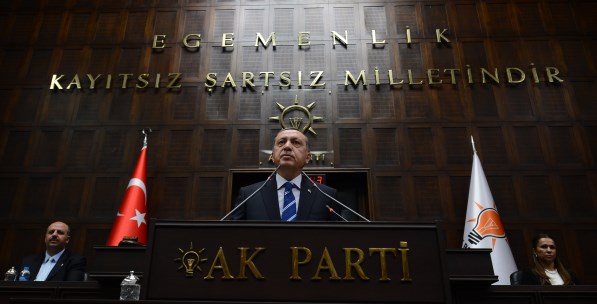Turkey became one of the main testcases in the Middle East and the Islamic world in which a self-pronounced "conservative democratic" political movement in the form of the incumbent AK Party crystallized as the main carrier of the country's politico- economic modernization and structural transformation in the last decade. Since its inception, leading social scientists rightly dubbed the leaders of this political coalition "conservative globalists" primarily because AK Party governments produced a novel blend of respect for traditional Islamic values, service-oriented local politics and accelerated integration with the political, social and economic structures of the modern world system. Their more secular, elitist, nationalistic and Kemalist alternatives in the Turkish political seen, on the other hand, tried to protect the Republican status quo by maintaining Turkey's relative isolation from the world economy via mixed economy formulas, delaying the democratization and Kurdish resolution processes necessitated by potential EU accession, and resisting foreign policy openings into the Middle East and other key regions.
At its facade this was a paradoxical state of affairs, because the AK Party as a culturally conservative force emerged and was accepted as the leading modernizing actor pushing for democratic consolidation and economic liberalization of Turkey. On the other hand, the conventional modernizing elites concentrated in the political and civil-military bureaucratic establishment as well as the large-scale bourgeoisie around the Turkish Industrialists and Businessmen's Association (TÜSİAD) were pushed into a defensive position based on cultural secularism and limited democratization under state tutelage. It became clear that a narrow definition of modernization that equated progress with cultural and social Westernization and unconditional integration into Western institutions during the Cold War was replaced with what we can call "democratic conservative developmentalism," prioritizing global integration while preserving national cultural identity and rapid economic advancement in a democratic setting.
In this context, the AK Party's conservativeminded reformism aimed at democratic consolidation and socio-economic development produced fantastic performance results thanks to the impetus provided by strong political legitimacy and state-society synergy. Unexpected for a conservative political movement, accession negotiations with the EU were pushed forward and went well up until the rise of a negative tide of European conservatism in the wake of the global economic crisis. Of course when the process of EU integration stalled, this was presented as a sign of weakening desire on the part of the AK Party leadership to join the European club, rather than a repercussion of the existential crisis of the EU under shortsighted and prejudiced political leaders. Still, profound democratization reforms were made in the domestic, legal and institutional frameworks particularly with respect to civil-military relations and the Kurdish issue, despite the fact that initiatives to adopt a brand new "civilian" constitution could not be completed. On the economic front, sustained growth momentum was achieved despite the negative effects of the global economic crisis; along with massive physical infrastructure investments, urban reconstruction initiatives and improvements in public service facilities including health, education, communications and transport.
Then came the socio-political volatilities triggered by the Gezi Park protests in May 2013 and the Dec. 17 operations led by a secretive judicial-security clique operating outside direct government control. The unavoidable administrative and legal measures taken by the government to reinsert public authority since then are pragmatically utilized by its domestic and international adversaries to prove that Turkey has lost its vision for democratization and adaptation to the EU norms. In the context of a multifaceted "perceptive operation" successfully p








